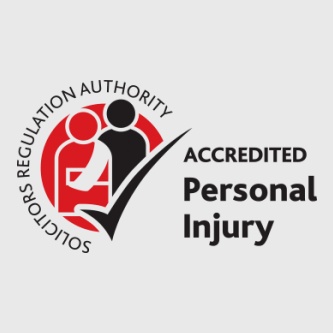Compensation culture. The scourge of our nation?
If the media, politicians and the ever-growing army of opinionated internet users are to be believed, then yes, it is.
It seems that people who claim personal injury compensation fall into the category of scapegoat-du-jour, to be filed alongside the widely derided benefits claimants and asylum seekers of Britain.
The overriding sense is that our country is sick and tired of the people out there who get something for nothing, leaving some to posit that the UK’s claims culture should be defeated once and for all, not least the Prime Minister.
But is there more to it?
Recent reform
As reported in October last year, new laws were introduced to combat the escalating number of frivolous claims and, in particular, the fraudulent whiplash cases that make up the highest proportion of UK personal injury cases.
This is something we welcome. The less fraudulent claims made, the better for everyone, and the hope is that insurance premiums will be universally reduced.
However, what should be cause for concern is the knock-on effect that this negativity may have on people who actually need help.
Is it fair to paint every claimant as someone who is just ‘on the make’? And is it fair to cast everybody in the legal profession as an ‘ambulance chaser’?
Should local media release skewed and biased diatribes that describe injured people as irritants who “badger [their] council for compensation”, whilst insinuating that a child “breaking their hip” is not deemed to be a valid claim?
Is it fair to make people in genuine and desperate need worry that they’ll be vilified for making a claim?
Damages limitation
The current climate mirrors what’s already happened in the USA. Through its tort reforms, the USA attempted to curb the number of its frivolous lawsuits by introducing limits on the amount of damages awarded to people in personal injury cases—regardless of the severity of the injury.
This subject is broached in the documentary Hot Coffee, which addresses society’s perceptions of the famous case of Liebeck v. McDonald’s. Many people are somewhat aware of the fast food chain being sued by a customer burnt by their own coffee, which led to the introduction of “Caution Hot” labels on its beverage containers.
Heavily influenced by the media, the claim was almost universally derided for being frivolous in the extreme; a widespread opinion that continues to this day. However, the true story of the case is that Liebeck was left seriously disfigured by the scalding hot 88 degree liquid (McDonald’s then-policy temperature), causing third degree burns requiring skin grafts and two years of treatment.
The power of the US media is startlingly similar to that employed in the UK. To a casual observer, it may now seem as if the majority (if not all) injury litigation should be dismissed as frivolous.
Hopefully, reforms similar to those in the US will never be adopted during the process of addressing the UK’s so-called ‘compensation culture’. If a child is diagnosed with cerebral palsy because of medical negligence, then it’s very unlikely that a compensation limit like Alaska’s ($400,000 or about £245,000) will be enough to support them for the rest of their life.
The majority of people in this country are fortunate enough never to have experienced a serious injury, as are their loved ones.
But it is a sad fact of life that very serious accidents happen.
Entitlement
Imagine if you became severely injured through no fault of your own—what help would you feel entitled to?
Would you feel part of a compensation culture? Would you part of the crowd out to get something for nothing?
Would you, out of principle, avoid help from a serious injury solicitor?
If so, then you may have some basic options.
The NHS will provide some initial critical care, and there may be some basic aids later supplied to you to help you with your new condition, though nothing tailored to your specific needs.
After this, you may face problems funding ongoing care and rehabilitation, as some injuries require expensive 24-hour round-the-clock care to be on hand.
How will you pay your bills? How will you pay for the adaptations to the home? Will you even be able to afford new appliances?
Of course, this is something of a doomsday scenario, and we hope you never experience such an injury. But what must be understood is that seriously injured people need help, and must not fall into the bracket of a perceived compensation culture.
After a serious injury, the amount of good that compensation is to be used for is almost infinite.
Compensation is not a dirty word and it is not a way to make a fast buck.
Serious injury compensation saves lives. One day, it might save yours.











